Lincoln Elementary offers two learning options: Traditional Elementary and Montessori. Both programs have strong curriculums that adhere to data-driven best practices and ensure students receive outstanding instruction that develops the whole child. Below you will find our school wide offerings; to learn more about our two educational tracks, visit the Montessori and Traditional Elementary pages.
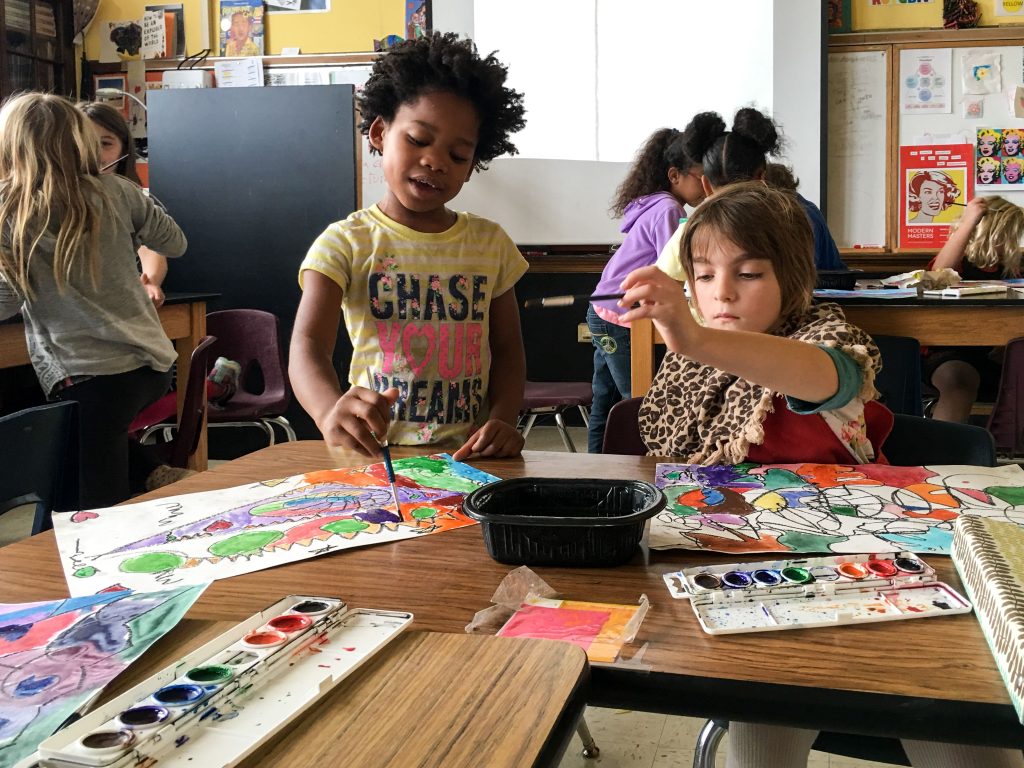
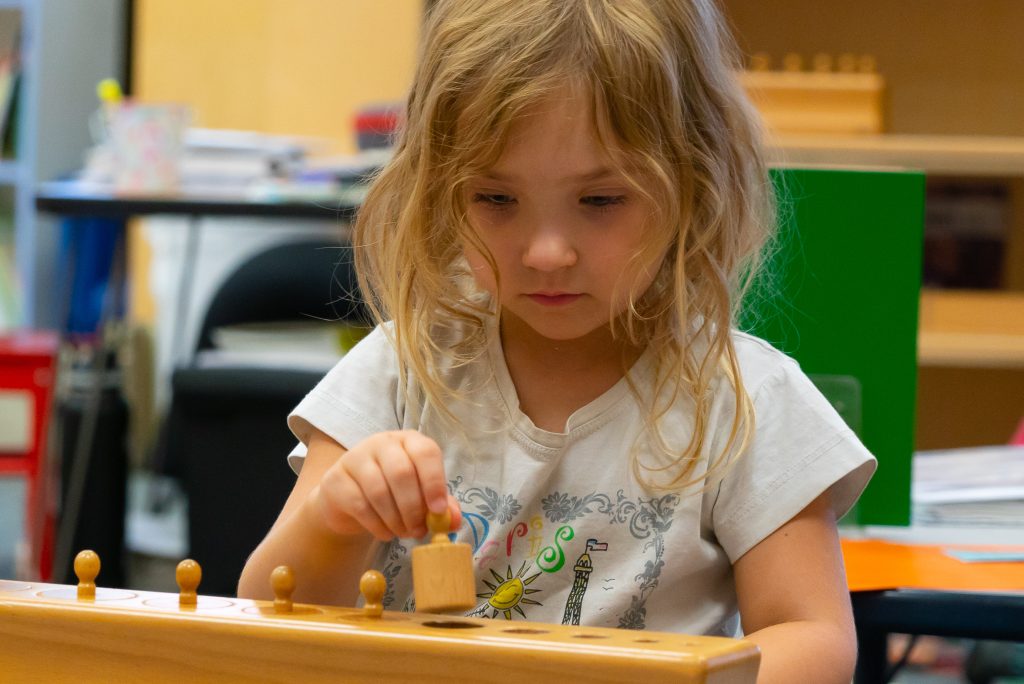
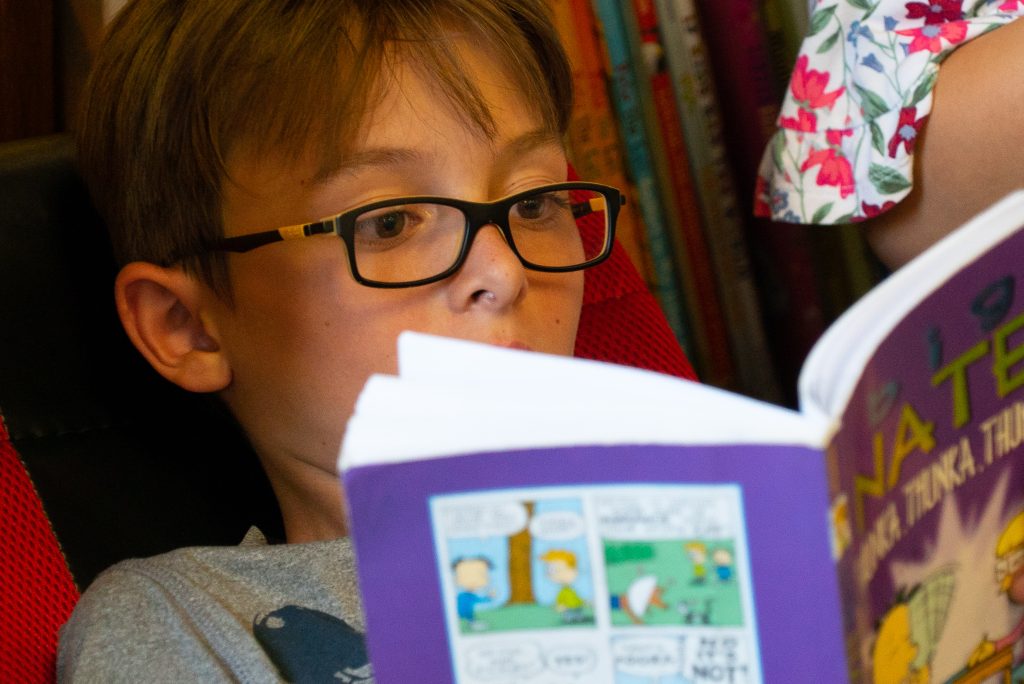
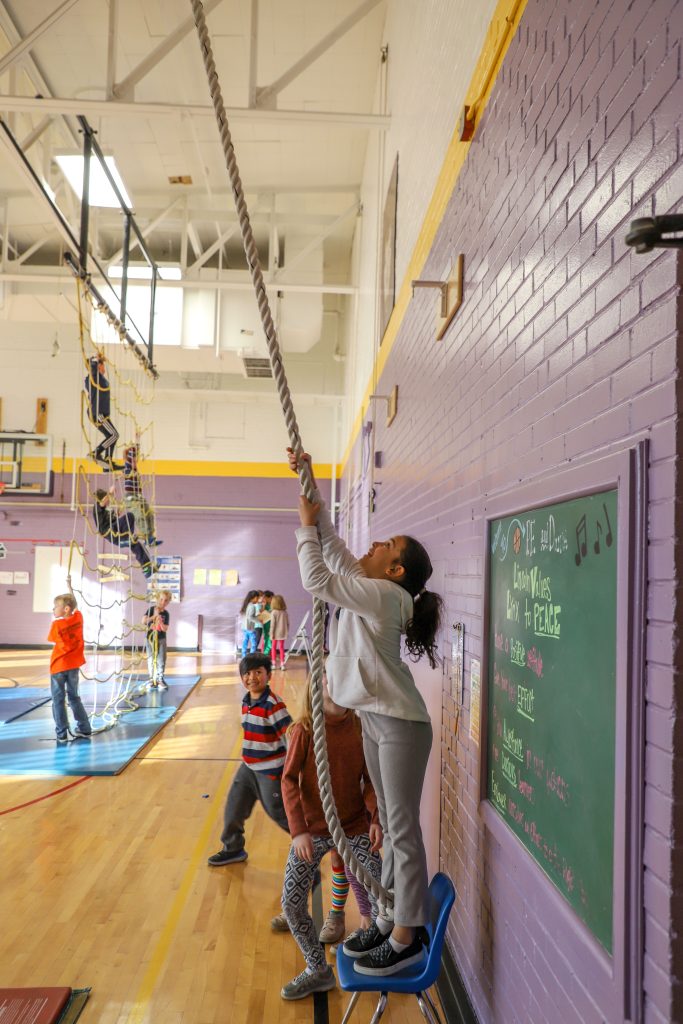
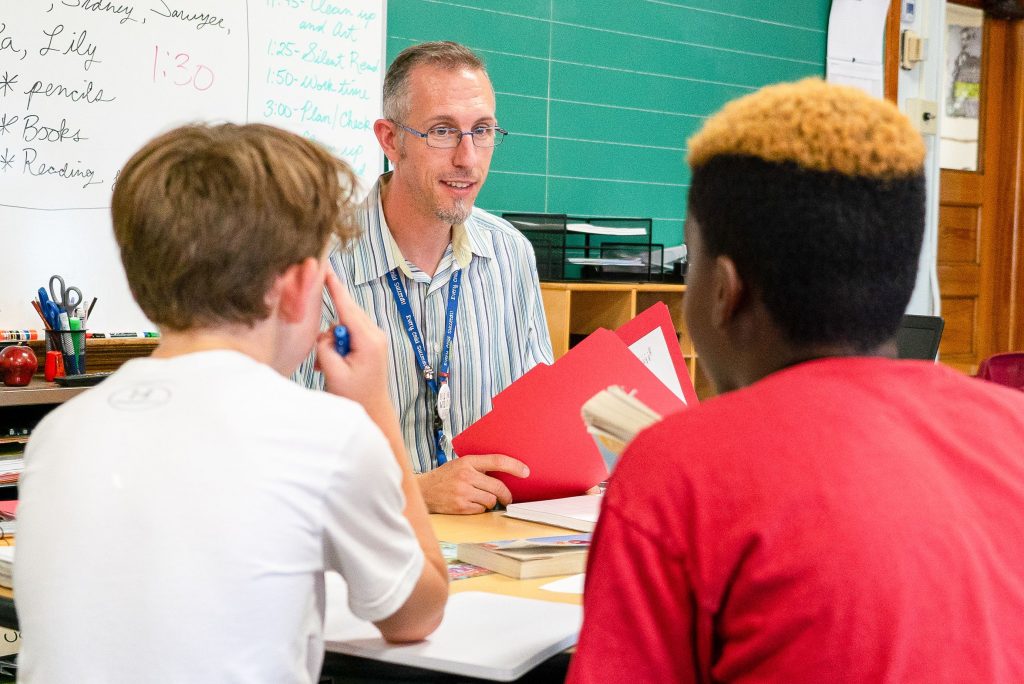
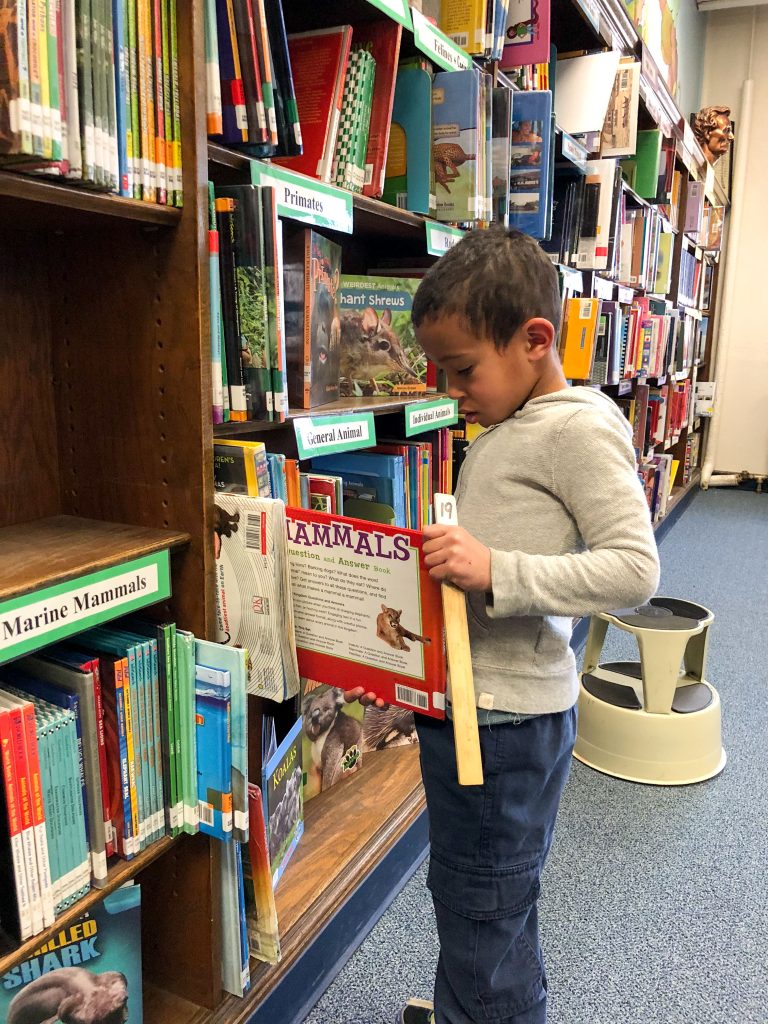
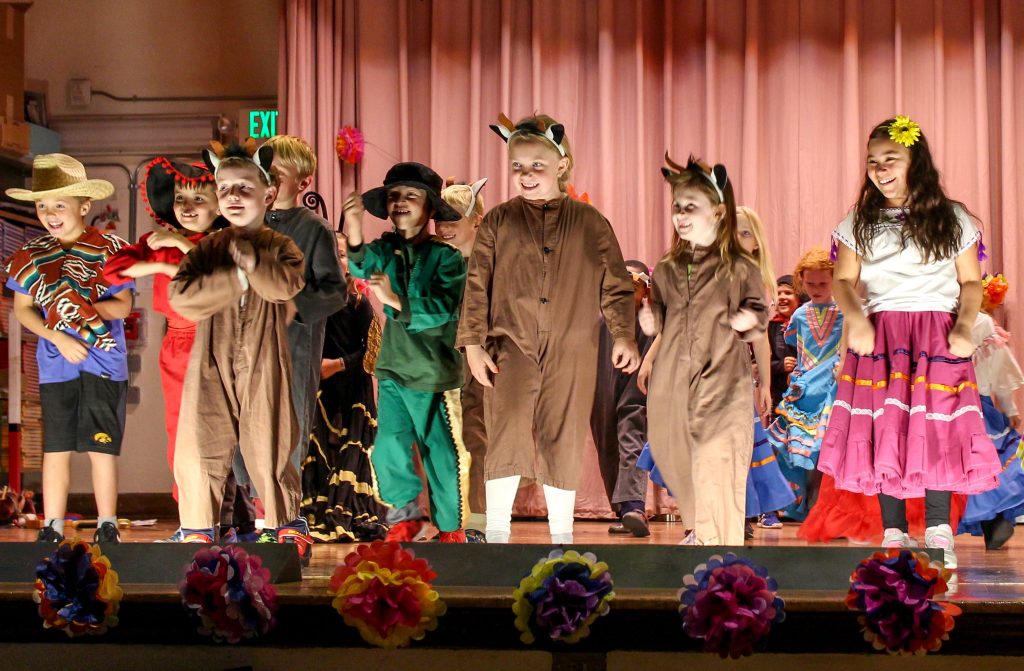
Every week, elementary students visit the Innovation Lab and Library, and participate in art, drama, music and physical education. These learning opportunities compliment our Montessori and Traditional Elementary curriculums and are foundational to the education we provide at Lincoln.
Our visual arts program encourages students to express themselves through a variety of mediums, techniques and conceptual frameworks.
Lincoln’s music program capitalizes on children’s natural interest in and appreciation for music. Our curriculum increases students’ understanding of music by teaching them to recognize musical elements, keep rhythm and read sheet music. Lincoln students enjoy expressing themselves through sound and movement while developing their nonverbal affective communication.
Lincoln’s Physical Education program focuses on cognitive, physical, and social-emotional development. Learning to live a healthy lifestyle, practicing teamwork and sportsmanship, developing coordination and gross motor skills, elevating heart rates and having fun are all important aspects of our PE curriculum.
Lincoln students are exposed to a variety of theatrical experiences through our Drama curriculum that includes acting, dance, musical theatre and performances. Drama instruction encourages collaboration and teamwork while building self confidence and an appreciation for the arts. Throughout the year, music and theatrical performances are produced for the Lincoln community in our historic theatre.
Kindergarten through 6th graders visit the library weekly to delight in books and hone their information gathering skills. Our librarian passionately curates a diverse collection of classic titles and new releases, and is dedicated to facilitating joy, wonder and a life-long love of reading in our students.
All students in grades 1-6 engage in weekly sessions in our Innovation Space, facilitated by the GT teacher. Based in STEAM, students participate in problem solving challenges that foster creativity and critical thinking. We utilize various student groupings, discussing and practicing collaborative skills, communication, and productive conversation, rooted in real world problems and situations and how students can approach these challenges together. Encouraging academic risk-taking and a growth mindset are central to the process.
The “science of reading” refers to a large body of research from various fields like education, psychology, and neuroscience that explains how people learn to read, outline the key skills needed for reading proficiency and providing evidenced-based practices for effective reading instruction. Essentially, it’s a comprehensive understanding of how the brain learns to decode and comprehend written language, informing the best ways to teach reading.
In Colorado, all teachers who provide literacy instruction in grades K-3 and grades 4-12 reading interventionists must complete evidenced-based training in teaching reading. At Lincoln, the majority of our teachers PK-6 have taken this training. The science of reading is woven throughout the curriculum we use and the instruction delivered to ensure that all students, including those with reading difficulties, are given appropriate reading instruction.
Learn more about what the science of reading is and what it looks like in our Elementary and Montessori programs by watching a recording of our Science of Reading Parent Education Night.
Throughout our school, we cultivate a nurturing, academically challenging and developmentally appropriate learning environment that provides resources to meet each child’s needs.
All Lincoln students receive daily instruction in our school-wide social emotional learning (SEL) curriculum, Caring School Community, from Collaborative Classroom. Our School Values align with the SEL curriculum, which provides age-appropriate lessons for students on respect, caring, inclusiveness, integrity, responsibility, and courage.
SEL is interwoven throughout our school – within the classrooms, in the support our administrators and specialists provide, and in the way we engage our community. Research shows that utilizing a SEL approach in schools improves student achievement and prosocial behaviors and reduces depression and stress. This approach is particularly effective in partnership with families.
Multi-Tiered Systems of Support (MTSS), previously known as RtI or SIT, is a problem-solving process that helps students by providing them with tiered levels of supports or intervention. It helps educators by identifying students who need additional academic and/or behavioral support and interventions as well as students who may need to be formally evaluated for specialized or special education services.
Students who are in MTSS may receive support from one of our licensed literacy or math interventionists. As part of the MTSS team, the interventionists specialize in providing targeted support for students who are not yet meeting grade-level expectations utilizing the Bridges math intervention curriculum and the Really Great Reading intervention curriculum. These students typically work with the interventionists outside of the classroom and receive 60 minutes of targeted small group instruction each week, in addition to support provided by the classroom teacher. Our two licensed interventionists work closely with classroom teachers to ensure students are receiving appropriate targeted, research-based supports to close achievement gaps, and support student learning and engagement in grade level standards.
You can read more information about MTSS in our Parent’s Guide to MTSS.
The Special Education team works to meet the needs of students who have an Individual Education Plan (IEP) by providing a continuum of services to meet the needs of students with disabilities. These supports are offered to all Lincoln students who qualify, Traditional Elementary and Montessori alike. The Special Education team also serves as a resource for classroom teachers to help differentiate instruction for students. Students are referred for special education evaluation by the MTSS team or by parent request (in writing).
Additionally, students who qualify may receive support from a related service provider, including our Speech Language Pathologist and Occupational Therapist, based on their individual needs.
Lincoln’s School Psychologist is at school five days a week to support the social and emotional well-being of students. With a comprehensive toolkit, services may include small group and/or whole class instruction, crisis intervention and support, anti-bullying, attendance support, restorative justice/mediation, and special educational supports and assessment. Through consultation with teachers and families, our school psychologist supports children’s behavioral and academic success inside and outside the classroom.
Occupational and Physical Therapists are assigned to Lincoln on an as-needed basis and work with students identified as having poor fine motor and/or gross motor skills. These students must also have an IEP. Students are recommended for services through referrals from the Special Education and/or MTSS (Multi-Tiered Systems of Support) team.
The Speech Language Pathologist is at Lincoln two days a week and works with children identified as having a Speech Language Impairment with an Individual Education Plan. The speech language pathologist works closely with general education teachers and the Special Education teachers and provides services to students who are working on language skills. Referral is made through the classroom teacher to the MTSS team or by parent request (in writing).
Lincoln Elementary fosters curious, confident, and joyful students prepared to reach their highest achievements and full potential. The educators of Lincoln cultivate a collaborative and inclusive environment, while implementing a variety of current best practices in differentiated instruction through child centered pedagogies via two instructional paths: Montessori and traditional elementary. Classroom differentiation will be our primary focus, with collaboration between the classroom teacher, GT teacher, and student, working to build students’ agency and explore their curiosities through learning extensions. GT students will also have the opportunity to work in small groups with the GT teacher to support their learning paths. All students in grades 1-6 receive weekly problem solving challenges in our innovation space led by the GT teacher. Students’ social emotional and affective needs are embedded into ALL learning as we celebrate diversity, the whole child, and a growth mindset.
Universal Screening and Identification
We work to increase more equitable opportunities for identification and programming through universal screeners in grades K, 2, and 6, cognitive assessments by request in other grades, and examining other data to build a body of evidence to support learners. Our GT teacher will administer all assessments at Lincoln. We recognize the discrepancies in identification and programming for underrepresented groups, and use a variety of identification pathways to increase opportunities for students.
Advanced Learning Plan (ALP) Development and Monitoring
Once a student meets the criteria for formal identification as GT/HGT, the GT teacher collaborates with students, teachers, and families to design ALPs for each student identified as GT/HGT with goals based on students’ interests and strengths. Since all goals are standards based, they are implemented within the classroom environment, with support from the classroom teachers and GT teacher.
Differentiation Support for Teachers
Collaboration with teachers to support differentiated instruction for GT students, providing extension opportunities that challenge and engage learners.
Strategic Peer Groups
We group students with similar goals and interests to pursue their extension projects together, increasing collaboration among peers.
Professional Development Opportunities
Teachers at Lincoln collaborate and explore strategies for GT students, with opportunities to engage in a two year long district directed GT/HGT training that will earn them a GT/HGT certification.
The DPS GT department website offers a more detailed look at the identification process, or contact kate_huisken@dpsk12.net with other questions.
Enrichments are offered after school and include classes in: Spanish, computer coding, cooking, piano, art, sports and more! Click here to learn more.